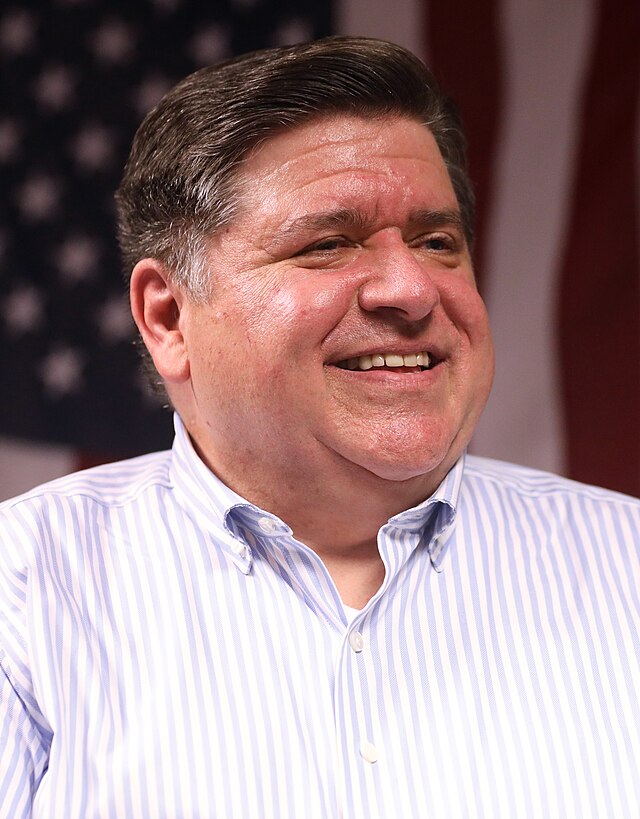The States Must Take the Lead

On so many things, states are going to have to save themselves, preferably working together. That’s certainly true with labor issues, which Terri Gerstein and Gaby Goldstein argued in TPM on Monday.
This is a moment for states to act — and not timidly or in isolation. Blue states have extraordinary untapped power, especially if they choose to wield it together. As federal labor protections crumble, states must fill the void, thinking boldly and creatively about how to build a country that supports working people.
Focusing on states will require a shift for national progressive leaders, many of whom have long viewed the federal government as the only real stage. Some unions, community organizations, and activists began shifting years ago, turning to states (and also localities). Pro-worker lawmakers have responded, passing higher minimum wages, paid sick and family leave, heat protections, warehouse worker safeguards, non-compete bans, and collective bargaining for farmworkers and public employees.
But the current moment calls for exponential acceleration of state action. At a baseline, states must immediately shield people from rollbacks and hold the line on current federal protections. States must go further, though, and with a scale and speed that matches the crisis in order to ensure fair wages, safe workplaces, and the right to form and join unions.
States can coordinate on passing “trigger laws” that snap into effect if federal standards are repealed, ensuring that rollbacks in Washington don’t leave workers exposed. They can share data on labor violators and coordinate enforcement, joining forces to bring multi-state cases pursuing corporate behemoths that violate workers’ rights. Taking a page from conservatives’ book, states can pass model worker protection laws and pool research, bill drafting, and communications strategies. These aren’t abstract ideas — states already cooperate this way in other arenas, from clean energy to professional licensing.
Some states are already experimenting. New Jersey, Pennsylvania, and Delaware signed an agreement to coordinate wage-theft enforcement. New York’s legislature this year passed a trigger bill to safeguard collective bargaining rights if the National Labor Relations Act collapses, with similar bills proposed in California and Massachusetts. Illinois enacted a law locking in certain workplace protections if federal standards are weakened. And the attorneys general of D.C. and Minnesota brought coordinated lawsuits against the gig company Shipt for allegedly misclassifying workers as independent contractors, depriving them of rights. But these examples are too few and too quiet. To meet the moment, we need a bolder, more visible strategy.
Imagine if a dozen states simultaneously introduced bills to enact workplace heat protections, ban non-compete agreements, guarantee unemployment benefits to striking workers, or make wage theft a felony. Coordinating “drop dates” so labor bills are introduced across states at once would create headlines and momentum. Imagine if two dozen states followed Maryland’s lead in requiring workforce standards in its private equity portfolio, ensuring that state pensions are invested in companies with good labor practices. Imagine if attorneys general from across the country launched joint investigations into Amazon’s treatment of “Flex” drivers as independent contractors, holding the company accountable for denying them employee rights.
Imagine if states created an interstate compact to operate a shared database of labor violators so that a scofflaw company barred from public contracts in Oregon couldn’t simply turn around and win contracts in Washington or California. Imagine if a group of states developed shared high-road labor standards required for bidding on any of their government contracts, or jointly purchased goods or services from businesses with demonstrated high-quality jobs. Imagine if a group of state agencies pooled resources to replace small but crucial federal agencies that have been demolished: states could fund regional mediation centers or workplace safety research programs. And imagine a coordinated media strategy to tell a clear story about states pooling power to improve people’s lives.
It’s not common for states to work together. But Democrats at the state level have their shit together much more than they do in Congress and so we are starting to see some positive steps. It has to happen if we want anything decent to survive at all.


